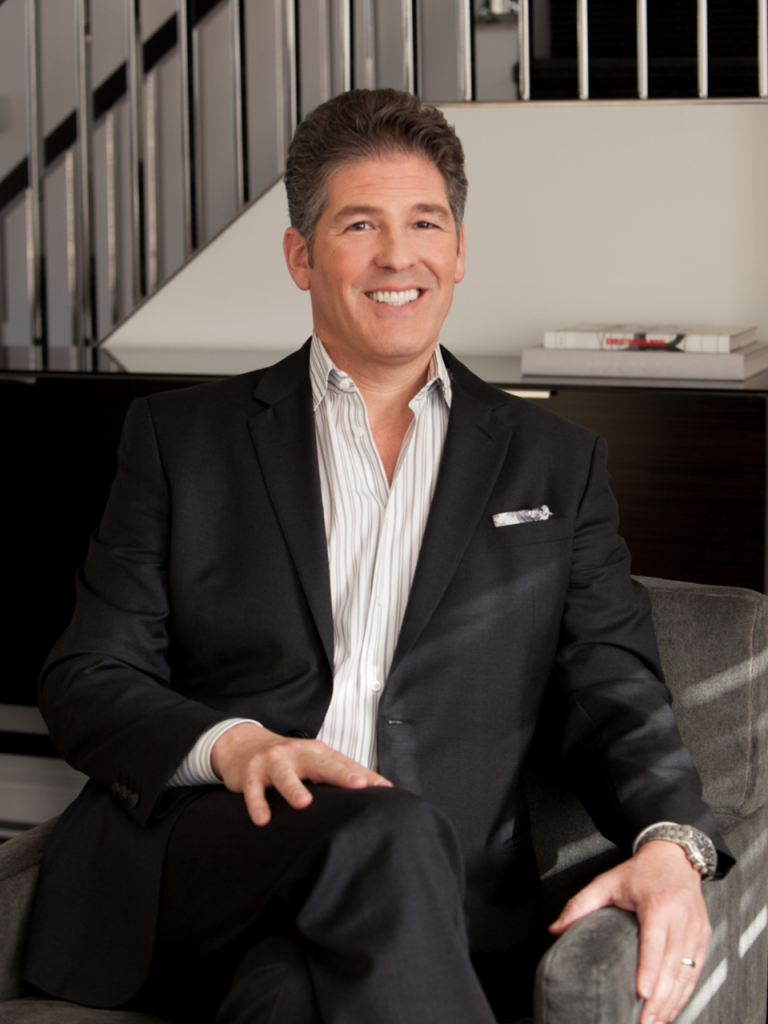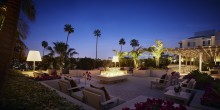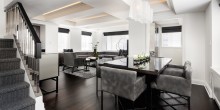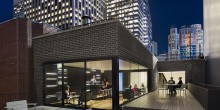Sometimes vacations last a little longer than a few days, and when they do, traditional hotels aren't always the best places to experience those extended stays. Since 2005, those travelers, who have been in need of an authentic home away from home, have been able to look no further than AKA’s collection of hotels. Named the "best known extended-stay apartment hotel" by the BBC's travel section, AKA, which has properties in New York City, Philadelphia, Los Angeles, Washington DC, and London has filled the void for those travelers who are spending weeks or maybe even months at a time away from their homes. Where typical hotels may not be as prepared to accommodate a lengthy stay as most long-stay visitors would like, guests of AKA are treated to many of the luxuries found in very high-end condominium buildings, including spacious units that are fully-furnished and equipped with beautifully-designed furnishings by the likes of Piero Lissoni or Meyer Davis, and access to in-house fitness centers, trainers, and nutritionists. "A lot of people who are traveling have some sort of chaos in their lives," says Larry Korman, president of AKA. "Our role is to provide calmness and tranquility and a sense of home." Here, Haute Residence talks with AKA’s Larry Korman about how his vision for AKA has changed over time, AKA’s plans for global expansion, and some of AKA’s new and exciting offerings.
Haute Residence: How exactly did AKA become the "best known extended-stay apartment hotel?"
Larry Korman: My father did create the furnished apartment in 1966 in Philadelphia. He recognized that there was a need between the daily stay in a hotel and the annual stay in an apartment, because there wasn’t a market serving that individual that was going for two months or three months. With AKA, we started out with a longer-stay versus that of a hotel, but a shorter length-stay versus that of an apartment, so we were that blue ocean between a hotel and an apartment.
HR: How has the initial vision for AKA changed over the years?
LK: Based on the realities within New York City, it has changed a little. Originally, we wanted to stand for something. We didn’t want to be everything for everyone, so initially somebody staying around two weeks to three months was our target. R-1 zoning, which is a life-safety transient discipline that the city brought in, saying that in order for any property to accept anyone for less than thirty days, they had to have certain life-safety ABA (Architectural Barriers Act) zoning to do that. Of course, Airbnb has thrown some confusion to all of that, but R-1 did create a bit of a tale of two towns, where we could take monthly only––not weekly––at two of our properties, but we could take daily, weekly, and monthly at some of the others. Some of the properties are now geared toward two to three week stays, whereas some of the other properties are geared towards two or three month stays, which is okay. It fits the respective neighborhoods, but it did force a change from when we originally started the concept in 2005.
HR: How has the incorporation of curated, high-end interior design helped to separate AKA from its competitor?
LK: Design is definitely a differentiator for AKA and we take pride in working with different architects and designers, so for instance in Philadelphia, we’re working with Piero Lissoni in doing the design. We’re working with some of the top architects. In Beverly Hills, we’ve worked with Hank Koning of Koning Eizenberg as the architect, Edward Asfour of Asfour Guzy Architects as the interior designer, and Pamela Burton & Company as the landscape designer. It was a great collaboration, and we’ve been doing that with Meyer Davis at two properties. It’s been fun to work with different design groups to bring out something unique at each property, but again to consistently apply in certain ways the way in which they are presented, like having high cleanliness, having security comfort, and not having a lot of people in terms of staff or guests so that residences have that amenity. In addition to the location, the design has been one way we’ve been able to stand apart from others in the service-residence category. You might see great designers at a Four Seasons, but you generally have not seen great design teams at furnished apartments or extended-stay hotels. We were the first really to do that and take it to high-end. We’ve used design as a differentiator between us and anyone else who does what we do.
HR: Why is AKA so committed to being eco-friendly?
LK: Well, you got to hear it from Leonardo Dicaprio at this year's Oscars. I think the spirit of being aware of your environment is important, and I think that today there has been a challenge that needs to be responded to by caring, conscious companies, first and foremost. I think residents and guests will take that message when they see it applied in a cool way. I just think that there is a purity and awareness that comes from an operator setting a trend in a design-oriented hotel that can transcend that temporary experience. If a resident stays with us for a month and they see the benefits, the comfort, and the cache with being reminded, they’ll bring that back to their home. I think it’s a way which we can spread a very positive message through a comfortable, cool, cache-oriented lifestyle. They can basically have their cake and eat it too, because they can be good, global citizens, while at the same time be very comfortable and enjoy their stay. I think it’s a good fight for who we are as a family. My grandfather and his father were farmers, so I grew up with a farmer’s mentality, where your word is your bond and you are diverted to the community, first and foremost.
HR: How has AKA been committed to the global citizen?
LK: I’ve always envisioned AKA as a global brand and the irony is that when Americans travel we travel four or five days to a Four Seasons or a Marriott, because we want that comfort level of a brand name; but Europeans like to holiday for a month and they want to live like a local. They want to live on a tree-lined street. I think that is a part of the success that Airbnb is having. People want to live like a local and experience the culture. People from Europe and South America are used to coming to a place like New York and not staying in a commercial district or at a name brand hotel. They like the idea of staying at an AKA and having a kitchen, going to the grocery store, going to the local restaurants, mingling with the residences on the streets, and getting to really understand the place that they are visiting. I think our concept and our offering always connected with a global-minded traveler who wanted to experience more than just the obvious hot spots. They wanted to experience and understand a deeper personality of a city, so I think we’ve always connected that way. We’ve also seen a lot of individuals traveling on their own. To have a sense of communal space with our lounge, our cafe, our fitness area, and our wellness program helps them to feel less alone as they travel, because they are meeting other people that are getting to know the city, as well as the neighborhood that they are in. I think that there has been a great connection between the global spirit and what we offer. When a concierge recommends certain places that everybody sort of goes to, those visitors don’t necessarily get the authentic flavor of the city that they are visiting, and they don’t necessarily venture out beyond the comfort zone. They are really experiencing a city in a very one-dimensional sense, where I think AKA offers an opportunity because of the length of stay and because of the residential experience to really three-dimensionally understand and experience a city.
HR: Tell us a little about AKA’s plans for global expansion.
LK: Well, we are opening up our 10th property in May on Wall Street. We’re opening our 11th property in our 11th year in Philadelphia. We're working on another property in Los Angeles and our first property in Miami, as well as a property in London. We're also hoping to be working on a partnership with a property in Paris. I don’t envision any of them happening at the same time. Our goal is to do one property a year, but in the next two years we may do two, so those are the target markets as of now.
HR: What else is next for AKA?
LK: Never rest on past laurels [laughs]. There are some properties where we just hired a music director and we are adding live music. There are some properties where we are trying to bring back some of the grandeur of afternoon tea. We added something we called Access AKA, where guests get a black metal card and with it, they can go to events that we’ve sponsored like the event we do for the Tribeca Film Festival, or they can purchase some of the fitness equipment or the sheets that we use at the same prices we buy them for. We are also creating with this condominium residence an opportunity for a few passionate residents of ours to purchase one of the residences. That's something new for us that we're doing at a few properties where they can, in a sense, become a partner in AKA. AKA Sutton is the first place we offer this option. We’re going to just offer 12 in the first year. We are trying to champion the basic and never lose sight of the basics with cleanliness and comfort, but we also are always trying to take our offerings to the next level. It's not only to be competitive, but also to really add something for our residences who stay with us and look for that next exciting thing. Again, because they are staying a month on average with us, it becomes their home away from home and if they can experience something new and different, it adds to the enjoyment and excitement of staying with us year after year.
For more information on AKA, visit its website.
All images courtesy of Quinn PR







